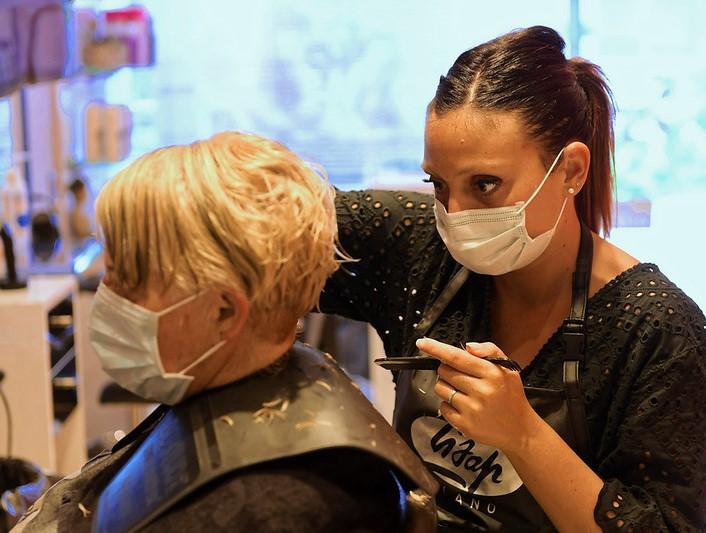COVID-19 cases in Europe are rising steadily, increasing about 26,000 cases per day, and two thirds of countries have reimposed some restrictions, the head of the World Health Organization's (WHO's) European regional office said today.
France, for example, reported 4,711 new cases today, its highest daily total since lockdown restrictions were eased, Reuters reported. The global total today rose to 22,511,187 cases, and 789,825 people have died from their infections, according to the Johns Hopkins online dashboard.
More frequent localized outbreaks in Europe
In a media statement, Hans Henri Kluge, MD, MPH, director of the WHO's European regional office, said eased restrictions and people letting down their guard are part of what's fueling a steady rise in cases. Localized outbreaks are becoming more frequent, often in closed settings such as workplaces, nursing homes, and social gatherings.
"Recent outbreaks among vulnerable groups such as migrants and refugees illustrate how we cannot leave anyone outside of our protective efforts. The virus increases inequalities," Kluge said.
Challenges in the fall include resuming school, tracking flu, strengthening economies, and addressing risks to older people, he said.
Kluge said he worried that more and more young people are among the reported cases, including fatal ones and those that involved long-term complications. He added that young people have an important role to play in curbing the spread of the virus by, for example, staying away from crowds and big parties.
"Spread fun, but do not spread the virus. Protect your parents and grandparents," Kluge said.
In other European developments:
- Germany today reported about 1,700 cases, its highest daily total since April, and Spain yesterday reported 3,715, its highest since the easing of its lockdown in late June.
- CureVac, a vaccine developer based in Germany, said today that it is in advanced talks with the European Union to supply an initial 225 million doses of the messenger RNA–based COVID-19 vaccine that is currently in phase 1 trials in Germany and Belgium.
- Developers of Russia's COVID-19 vaccine said today that further testing for domestic approval will involve 40,000 people, Reuters reported, based on information from Tass, a Russian news agency.
Increases in other flare-up countries
South Korea reported 288 new cases, marking the third straight day of cases over 200, the Korea Times reported, based on data from the Korea Centers for Disease Control and Prevention.
The outbreak began in Seoul, with many cases linked to a church cluster, and now cases are increasing outside of the city, according to the report.
Health officials believe some of the transmission is related to people who attended an anti-government rally, and contact tracing efforts are under way to find people who may have been exposed in that setting.
Gatherings of 10 or more people are banned in Seoul, and officials closed beaches in the port city of Busan in efforts to further curb the spread of the virus.
In Australia, where an outbreak in Victoria state triggered a lockdown in the Melbourne area, health officials reported 240 new cases today, the fifth day that cases have been below 300, Australian Broadcasting Corporation reported. Of 13 new deaths, 8 were part of nursing home outbreaks.
Elsewhere, New Zealand's health ministry today reported five new cases, all linked to a cluster that emerged last week after the country went more than 100 days with a locally transmitted case.
In other global developments:
- Brazilian health officials are reporting some early signs of slowing, based on a recent weekly drop in cases, Reuters reported. Also, Brazilian lawmakers in a joint session of both houses overturned President Jair Bolsonaro's vetoes of a mandatory mask rule and a law to protect indigenous people against COVID-19, according to CNN.
- Indian researchers who conducted a serosurvey in the capital city of New Delhi, which involved 15,000 people, estimate that 30% were exposed to SARS-CoV-2, Reuters reported. The findings were similar to other studies done in Mumbai and Pune.
- Indonesia shows no signs of containing its outbreak and has the fastest spread in East Asia, Reuters reported, noting that the virus has spread throughout the country, which has a low rate of testing, minimal contact tracing, resistance to lockdowns, and unorthodox treatments promoted by the president's cabinet.






















